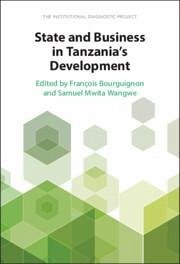
State-Directed Development
Political Power and Industrialization in the Global Periphery
Versandkostenfrei!
Versandfertig in 1-2 Wochen
127,99 €
inkl. MwSt.
Weitere Ausgaben:

PAYBACK Punkte
64 °P sammeln!
Why have some developing countries industrialized and become more prosperous rapidly while others have not? Focusing on South Korea, Brazil, India, and Nigeria, this study compares the characteristics of fairly functioning states and explains why states in some parts of the developing world are more effective. It emphasizes the role of colonialism in leaving behind more or less effective states, and the relationship of these states with business and labor in helping explain comparative success in promoting economic progress.














